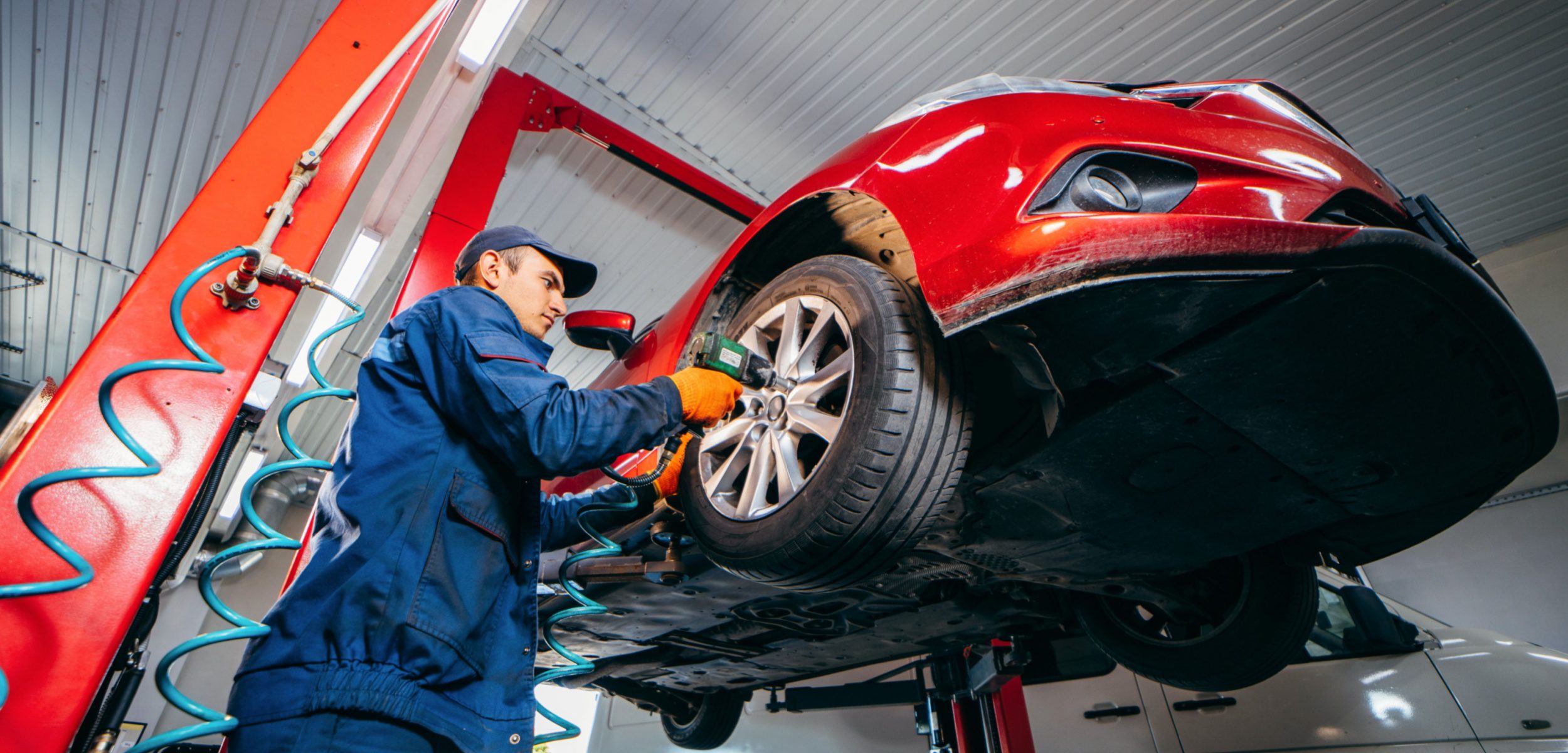No products in the basket.
Are you thinking about becoming a car mechanic? If so, it is a great choice, and this blog is your perfect guideline! Car mechanics play a vital role in keeping our vehicles running smoothly and ensuring our safety on the roads. But how do you become one? Let’s explore the journey of becoming a car mechanic, step by step.
What does a Car Mechanic do?
First things first, what does a car mechanic do? The day-to-day responsibilities of a mechanic can vary widely. Here are some common duties of a car mechanic:
- Diagnosing Issues: Identifying mechanical problems using diagnostic tools.
- Performing Repairs: Fixing or replacing faulty vehicle components.
- Conducting Maintenance: Performing routine maintenance tasks such as oil changes and brake inspections.
- Inspecting Vehicles: Assessing the condition of vehicle parts to ensure safety and performance.
- Testing and Adjusting: Confirming vehicle systems work correctly after repairs or maintenance.
- Customer Interaction: Communicating with customers about vehicle issues and repairs needed.

How do you become a car mechanic?
High School Diploma or Equivalent
To begin your journey, you generally need a high school diploma or equivalent. While in school, focus on subjects like mathematics, physics, and computer science. Moreover, these courses provide a strong foundation for understanding automotive technology and repair.
Technical Training Programmes or Online Courses
Vocational schools and community colleges offer courses specifically designed for aspiring mechanics. Therefore, consider enrolling in a technical training programme. Moreover, these programmes cover everything from basic automotive repair to advanced diagnostics, leading to certifications or diplomas.
Furthermore, you can visit the Training Tale and take our Car Mechanic course, which is one of the best in the UK. Also, our courses are CPD-certified and we provide 24/7 support if you face any issues.
Apprenticeships
One of the best ways to learn to operate is through an apprenticeship. This on-the-job training allows you to work alongside experienced mechanics, gaining hands-on experience and learning practical skills. Moreover, apprenticeships can be found through local garages, dealerships, or trade unions.
Certifications and Licencing
Certification is key to advancing in your career. The National Institute for Automotive Service Excellence (ASE) offers a range of certifications that can expand your credentials. Furthermore, depending on your location, you might need to meet state-specific licensing requirements.
Specialisations in Automotive Repair
As you gain experience, you might decide to specialise in a particular area of automotive repair. These common specialisations include engine repair, transmission systems, and brake systems. Thus, specialising can make you more attractive to employers and open up new career opportunities.
Gaining Experience
It’s very important to gain experience in this sector. Therefore, look for entry-level mechanic jobs, such as lube technician or service technician. As a result, this will help you develop practical skills and gain valuable experience. Furthermore, as you become more proficient, you can take on more complex tasks and responsibilities.

What are the Skills required to Become a Car Mechanic?
To become a successful car mechanic, you’ll need a blend of technical skills, soft skills, and personal qualities. Some of the skills include:
Technical Skills
- Automotive Knowledge: Understanding how different car systems like engines, brakes, and electrical systems work together is fundamental. So, this knowledge can be acquired through training programs or by tinkering under proper safety guidelines.
- Diagnostic Skills: Mechanics are like detectives for cars. You’ll need strong analytical thinking and problem-solving abilities to diagnose the root cause of car troubles based on symptoms and test results.
- Hands-on Skills: Working on cars requires proficiency with various tools, from wrenches and screwdrivers to more specialised diagnostic equipment. Therefore, you should be comfortable using these tools safely and efficiently.
Soft Skills
- Communication: Explaining complex car problems to customers clearly and understandably is important. Hence, you’ll need good listening skills and strong communication skills.
- Customer Service: Building trust and connection with customers is important. Patience, courtesy, and a positive attitude will go a long way in this field.
- Attention to Detail: Mechanics need to be careful and detail-oriented to ensure repairs are done correctly and avoid overlooking any potential issues.
Personal Qualities
- Problem-solving: Strong problem-solving skills are key to diagnosing and fixing car problems. Therefore, you’ll need to think critically and creatively to find solutions.
- Teamwork: While some mechanics work independently, teamwork is often important in repair shops. Moreover, the ability to collaborate with colleagues and share knowledge is valuable.
- Physical Stamina: Being a mechanic can be physically demanding. You’ll likely be standing, bending, and lifting heavy parts throughout the workday.
Work Environment
Car mechanics can work in various settings, including dealerships, independent garages, and repair shops. Moreover, each environment has its own working conditions and challenges. Some mechanics also choose to open their own shops, offering more flexibility and control over their work.

Job Prospects and Career Growth
The demand for skilled car mechanics is very strong. Thus, with experience and certifications, you can advance to high-paying positions, such as master mechanic or service manager. Some of the car mechanic job positions and salaries in the UK are:
- Automotive Technician: £24,000 – £30,000 per year.
- MOT Tester: £25,000 – £32,000 per year.
- Service Advisor: £22,000 – £28,000 per year.
- Workshop Supervisor: £28,000 – £35,000 per year.
- Automotive Service Manager: £35,000 – £45,000 per year.
Conclusion
Becoming a car mechanic is a rewarding journey that combines technical skills, problem-solving abilities, and a passion for vehicles. By following the steps outlined in this blog, you can pave your way to a successful career in the automotive industry. So, start by gaining a solid educational foundation through a vocational programme or hands-on experience. Moreover, seek certification to validate your skills and improve your employment potential.
Furthermore, good communication and customer service skills are significant. Building trust with your customers is as important as your technical expertise. In addition, with dedication, continuous learning, and a commitment to excellence, you can become a highly skilled car mechanic, capable of diagnosing, repairing, and maintaining vehicles with confidence and precision.




